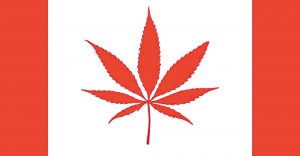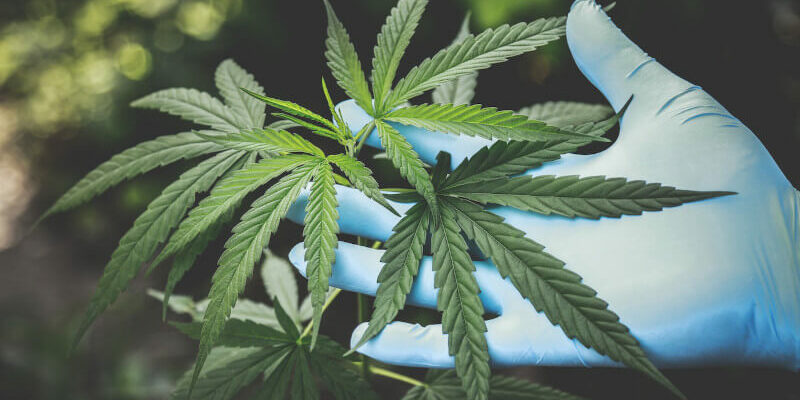Back in 2020, when COVID-19 lockdowns brought uncertainty and job losses accross South Africa, and I found myself, like many South Africans, searching for new ways to earn a living. Around the same time, South Africa was undergoing significant legal changes regarding the decriminalization of cannabis, sparking a wave of new cannabis businesses. Across radio stations and alternative media platforms, companies openly buying and selling dagga were emerging, challenging the boundaries of full legalization and cannabis commerce.
Intrigued by this rapidly evolving industry, I began researching the legal landscape, analyzing loopholes and interpretations of the new laws. What I discovered was surprising—these businesses were, in fact, operating legally under South Africa’s updated cannabis regulations. However, the reality wasn’t that simple. Grey areas in the law, outdated interpretations, and resistance from traditional legislators and law enforcement created a complex, often conflicting environment. While the law permitted certain activities, old-school authorities weren’t fully on board, making it a challenging yet fascinating industry to navigate.
It all started relly in 2018, when the Constitutional Court of South Africa ruled in the case of Minister of Justice v Prince that adults have the right to use, possess, and cultivate cannabis for personal use in private. This landmark decision effectively legalized the private recreational use of cannabis.
Constitutional Court’s Post-Judgment Media Summary
- Ruling Date & Case Background
- On 18 September 2018, the Constitutional Court confirmed the High Court’s ruling that criminalizing the private use, possession, and cultivation of cannabis was unconstitutional.
- The ruling arose from three consolidated court cases challenging sections of the Drugs and Drug Trafficking Act (1992) and the Medicines and Related Substances Control Act (1965).
- Key Findings of the Court
- Personal Use in Private: Adults may use, possess, and cultivate cannabis in private for personal consumption.
- Decriminalization: Sections of the Drugs Act and Medicines Act that prohibited these activities were ruled unconstitutional as they infringed on the right to privacy (Section 14 of the Constitution).
- Not Limited to a Private Home: The right to privacy extends beyond a residence to any private space.
- Limitations & Legal Grey Areas
- Public Use is Still Illegal: Adults cannot use or possess cannabis in public.
- Minors Excluded: Cannabis use or possession remains illegal for children.
- Quantity Not Defined: Parliament must determine the legal limits for personal use and possession.
- Enforcement & Interim Relief
- Parliament Given 24 Months: The Court suspended its ruling for two years to allow Parliament to amend the laws.
- Interim Protection: Until legislative changes were made, it was not a criminal offense for adults to use, possess, or cultivate cannabis privately for personal consumption.
- Police Discretion: Officers must assess possession quantities and determine if it is for personal use or dealing. Courts will have the final say in disputed cases.
- Final Decision
- The state’s appeal was dismissed, and the High Court’s order was confirmed.
- Cannabis for personal use in private spaces is legal, but public use, dealing, and underage consumption remain criminal offenses.
The new bill removes cannabis from South Africa’s list of banned narcotics, allowing adults to grow and consume it privately, except in the presence of children. It also provides for the automatic expungement of past cannabis-related convictions, though the process and timeline remain unclear, particularly regarding the release of the estimated 3,000 individuals imprisoned for cannabis offenses as of 2022. While this marks a significant step forward, activists stress that the fight is far from over, as cannabis trade remains illegal outside of medicinal sales under strict regulation. Unlike in other legalized countries, South Africans cannot legally purchase cannabis for recreational use unless they grow it themselves, leaving a grey market to flourish.
The cannabis industry in South Africa has been expanding rapidly since the 2018 Constitutional Court ruling that decriminalized private use. Over the years, dispensaries and “private members’ clubs” have operated under legal loopholes, with some law enforcement officials turning a blind eye while others continue to target certain businesses.
The need for regulation has never been more urgent, as cannabis trade is widespread despite remaining technically illegal. South Africa’s historical relationship with cannabis dates back centuries, from indigenous Khoisan and Zulu traditions to colonial-era restrictions and apartheid-era criminalization, which disproportionately impacted Black communities. Now, as the country grapples with legal reform, the challenge remains to create a regulatory framework that aligns with the evolving industry while addressing past injustices.
How Cannabis Grow Clubs Operated
The Grow Club Model & Legal Interpretation
Cannabis Grow Clubs in South Africa, operated under a fully legal loophole derived from the 2018 Constitutional Court ruling, which allowed adults to cultivate and consume cannabis privately. These clubs aimed to facilitate legal private cultivation for members who lacked the time, space, or expertise to grow their own plants.
The model worked as follows:
- Lease Agreement – Members signed a contract ceding their private cultivation rights to the club, which would grow cannabis on their behalf.
- Member-Owned Plants – Members provided their own seeds or clones, as the club could not legally purchase cannabis.
- Designated Growing Spaces – Each member was allocated a specific, measured grow area, ensuring compliance with the ruling on private cultivation.
- Strict Record-Keeping – Clubs used barcoding and tracking systems to ensure transparency and document cultivation progress.
- Harvest & Return – Once the plant matured, it was harvested, trimmed, and returned to the member, including all plant matter (roots, stems, and stalks).
The legal grey area stemmed from whether these clubs constituted private cultivation or illegal commercial distribution, but in reality, this entire situation was the direct result of government mismanagement on multiple levels. For the same reasons I was researching legal cannabis sales in South Africa, I have no doubt that these businesses were grappling with the exact same predicament—navigating an industry that had been partially decriminalized but not properly regulated.
At the time, South Africa’s lockdown restrictions had effectively banned alcohol sales, leading to massive ripple effects across multiple industries. This not only fueled the demand for alternative recreational substances like cannabis but also exposed the government’s failure to create coherent policies that aligned with public behavior. What happened next was inevitable, entrepreneurs, consumers and legal experts worked within the very framework the government had created to provide people with what they were already going to seek out, whether legally or illegally.
Police Crackdown & Court Rulings
Despite their legal arguments, Grow Clubs faced raids and prosecution. Law enforcement viewed them as illegal drug dealers rather than facilitators of private cultivation. This resulted in:
- SAPS Raids – Police cracked down on major clubs.
- Delayed Court Cases – Legal proceedings faced setbacks due to bureaucratic delays.
- Final Verdict – After years of legal battles, the courts ruled against Grow Clubs, officially declaring them illegal.
Despite the 2018 Constitutional Court ruling allowing private cannabis cultivation and use, SAPS continued to raid and arrest small-scale growers and dispensaries, even to the point of flaunting their actions on social media and mainstream press. Individuals with private cannabis gardens were treated like major criminals, despite operating within legal loopholes and this was the case with the Grow Clubs. Law enforcement ignored judicial rulings, and continued to enforce outdated drug policies while disregarding the legal shifts in cannabis regulation.
The High Court ruled against The Haze Club (THC) on August 29, 2022, stating that cannabis grow clubs, which provide cultivation services for members, fall outside the legal protections of private cannabis use as defined by the 2018 Constitutional Court ruling. Judge Hayley Maud Slingers held that without explicit legal regulation, such clubs could effectively legalize dealing, which remains prohibited under the Drugs and Drug Trafficking Act.
The Cannabis for Private Purposes Bill is still under parliamentary review, the court determined that it is not within the judiciary’s role to preempt future legislation. As a result, grow clubs remain criminal enterprises under current law, and convictions can lead to imprisonment. Despite this setback, THC’s legal team plans to appeal, arguing that the court took a narrow interpretation of privacy rights and the limitations on private cannabis cultivation. The outcome of future legislative amendments, particularly the removal of cannabis from the Drugs Act, will determine whether cannabis clubs will have a place in South Africa’s legal framework.
While many in South Africa see cannabis as the country’s next “gold” export (and there is a mountain of data to support this) there is stills a deeply ingrained conservative mindset continues to resist any change whatsoever.
The global shifts towards legalization and economic opportunities, opponents still equate cannabis with hard drugs, refusing to acknowledge its medicinal and commercial potential. This resistance is especially glaring when compared to the widespread acceptance of alcohol and cigarettes, which are far more harmful yet remain socially and legally acceptable.
This entrenched stigma fuels SAPS enforcement, allowing law enforcement to act as on-the-ground gatekeepers of cannabis policy. Instead of following judicial rulings or government ambitions for a cannabis economy, SAPS continues to raid growers and dispensaries, reinforcing outdated narratives. Until the perception of cannabis shifts at both a societal and institutional level, progress will remain slow, with law enforcement dictating cannabis policy through arrests rather than regulation.
Contradictions & The Future of Cannabis in South Africa
The government’s stance on cannabis remains contradictory. On one hand, police shut down tax-paying cannabis businesses, while on the other, the government promotes cannabis commercialization for economic growth. President Cyril Ramaphosa’s acknowledgment of cannabis as an economic opportunity and proposed legislative amendments offer some hope for future legalization. However, with the current court ruling, Grow Clubs remain illegal, leaving thousands of cannabis users in legal uncertainty. An appeals process is underway, but for now, cannabis commerce in South Africa remains in legal limbo. The state’s inability to fully grasp the real-world implications of its laws meant that instead of creating clear, regulated pathways, it left loopholes that businesses legally capitalized on, only to later criminalize them retroactively when the model gained popularity.
Cannabis for Private Purposes Act
The Cannabis for Private Purposes Act (CFPPA), signed into law by President Cyril Ramaphosa, allows adults to cultivate, possess, and consume cannabis privately while also expunging past convictions for non-commercial cannabis offenses. However, selling cannabis remains illegal, and individuals caught trading it face fines or imprisonment. The law defines cannabis strictly as the flowering tops of the plant, with other parts such as stalks, seeds, and leaves classified as hemp, which is regulated separately. The legislation also establishes guidelines for handling minors found in possession of cannabis, ensuring they are dealt with outside the criminal justice system.
The act aligns with the National Cannabis Master Plan, which aims to promote job creation and economic growth, but it fails to legalize cannabis as a commercial commodity, despite high local and international demand.
While removing cannabis from the Drugs and Drug Trafficking Act removes a barrier to industrial hemp investment, opportunities in green energy, biofuels, construction materials, and textiles remain secondary to the broader issue: the ban on cannabis trade for personal use. The law does not explicitly legalize private grow clubs, but it may impact cases such as The Haze Club’s constitutional challenge, which is set for review by the Supreme Court of Appeal. Moving forward, the justice minister will draft regulations on possession limits, transportation, and expungement procedures, shaping the future of cannabis policy in South Africa.
Despite politicians, including Ramaphosa, advocating for South Africa’s entry into the global cannabis market, government policy contradicts its own ambitions. South Africa’s ideal climate and workforce make it an attractive location for cannabis cultivation, without the high costs of indoor growing seen in other countries. Yet, while the CFPPA legalizes private use, it keeps trade illegal, leaving South Africa behind nations that have embraced full cannabis legalization for economic growth.
Ramaphosa signed the bill into law just before national elections, removing cannabis from the Drugs and Drug Trafficking Act but stopping short of full legalization. Though the government claims to be laying the groundwork for a formal cannabis market, years of delays due to bureaucratic and legal obstacles have slowed progress. The continued ban on sales restricts economic opportunities and job creation, preventing an industry that could already be thriving from reaching its full potential.
The Portfolio Committee on Justice and Correctional Services deliberated on the Cannabis for Private Purposes Bill, discussing key aspects such as penalties, age restrictions, and THC limits. The Committee agreed to set the legal age for cannabis use at 18, aligning it with alcohol regulations, despite concerns about its impact on young people, including motor accidents and health risks. Members debated whether cannabis usage should be restricted for students still in school and requested input from the Departments of Health and Basic Education. The Committee also reviewed the 1% THC limit, questioning its scientific basis and how it might affect commercialization, particularly regarding hemp and medicinal cannabis. There was growing concern that the Bill should align with future commercialization efforts while ensuring children are protected from exposure.
A major point of contention was the licensing criteria for cannabis cultivation. The Committee criticized the lack of consideration for existing informal growers, who have cultivated cannabis for years but may be sidelined by new regulatory frameworks. Members stressed the need for local skills development and fair licensing processes, particularly for disadvantaged communities. The discussion also highlighted potential contradictions in regulating cannabis as both a restricted and commercial product, requiring further legal input. Concerns were raised about whether additional public participation was needed before finalizing the Bill, especially regarding commercial licensing, religious or cultural exemptions, and THC content limits. The Committee agreed to receive a legal opinion and continue discussions in the next session.
Medical Cannabis in South Africa
In South Africa, medical cannabis is legally available to patients if a licensed health practitioner determines it could aid in treatment. The prescribing doctor must apply to the South African Health Products Regulatory Authority (SAHPRA) on behalf of the patient. Once approved, a prescription is issued and can only be dispensed by pharmacists registered with the South African Pharmacy Council (SAPC). Strict regulatory controls ensure medical cannabis is only available through authorized professionals, distinguishing it from recreational use.
The legalization of medicinal cannabis has led to the growth of a regulated industry, with clinics providing patients access to pharma-grade cannabis treatments. Consultations are available via telemedicine or in-person visits, where doctors develop personalized treatment plans based on CBD and THC ratios. Older adults are increasingly exploring cannabis as a natural alternative to pharmaceuticals, particularly non-psychoactive options. Products include oils, sprays, capsules, and vapes, with pricing dependent on the formulation and dosage.
In many countries, including the United States, Canada, and Germany, medical cannabis legalization preceded full recreational legalization. Governments tend to favor public health arguments over personal freedom, making medical access an easier legislative step. Scientific evidence showing cannabis benefits for chronic pain, epilepsy, and PTSD has been a driving force in policy changes. While medical professionals have led these efforts, activists in countries like Thailand and Mexico have also played a key role in challenging restrictive drug laws and pushing for broader legalization.
Cannabis Dispensaries in South Africa
Just like the Cannabis Grow Clubs, South Africa’s cannabis dispensaries are now operating in legal grey areas, exploiting loopholes in medical cannabis laws. Despite the 2022 court ruling that retroactively deemed Grow Clubs illegal, despite their initial compliance with the 2018 Constitutional Court ruling these dispensaries have taken a different approach, leveraging medical prescriptions as a legal shield for selling cannabis.
Unlike Grow Clubs, which relied on private land use and cultivation rights, cannabis dispensaries anchor themselves in medical necessity, giving them a stronger legal footing. These shops operate as private spaces with gated entrances, preventing unrestricted public access. Inside, cannabis buds are displayed in perspex showcases, and stock levels remain low enough to avoid classification as large-scale distribution. Sales require a prescription, which can be widely obtained, making these dispensaries a subtle but rapidly growing presence in South Africa’s cannabis landscape. Their branding and store names hint at their purpose without explicitly advertising cannabis, allowing them to operate openly while remaining within the ambiguous boundaries of the law.
Online Medical Cannabis Dispensaries in South Africa
While physical cannabis dispensaries are popping up across South Africa, a largely unregulated online market is thriving in the background. These online dagga dispensaries don’t exist as actual stores, they operate almost entirely in cyberspace, using networks of private small-scale growers who collectively supply products under the guise of medical cannabis sales. This setup is strikingly similar to the Cannabis Grow Clubs, which were initially legal under the 2018 Constitutional Court ruling but later shut down in 2022.
Unlike traditional dispensaries or grow clubs that centralized cultivation in one location, these online markets rely on individual growers cultivating cannabis in private residences within the legal limits. Instead of a single facility being targeted, sales are spread across multiple small-scale producers, making large police raids unlikely. Orders are placed through websites, encrypted chats, or social media and cannabis is delivered discreetly from multiple loations using standard ecommerce delivery serives.
Despite tight regulations and the risk of arrest, this market continues to grow because demand hasn’t stopped. Cannabis users—whether for medical or recreational purposes—are finding ways to access it regardless of the law. Many small business operators are willing to take the risk, knowing that legislation is slow, enforcement is inconsistent, and consumers will always find a supplier. Until South Africa fully legalizes and regulates the cannabis trade, the grey market will continue to fill the gap.
South African lawmakers and governments worldwide all fail to recognize that banning cannabis sales doesn’t reduce demand; it just fuels the black market. Instead of creating a regulated, taxable industry, restrictive laws push trade underground, where enforcement litterally can’t keep up. People will keep buying and selling cannabis, the only question is whether the government chooses to regulate it or lose control entirely.

Beyond their traditional uses, smelling salts have found a niche among athletes seeking a chemical…

Canadian researchers think that a special strain of cannabis they have been working with might…

In Canada Cannabis is legal for recreational, commercial and medicinal use. Medicinal cannabis was legalized…
Why South Africa Needs Full Cannabis Legalization
South Africa was once a global powerhouse in gold production, but as mining declines, the country urgently needs new economic drivers. One of the most lucrative and underutilized industries is cannabis, a multi-billion-dollar global market that South Africa is failing to capitalize on. Countries like Canada, the U.S., and parts of Europe have embraced legal cannabis trade, while South Africa lags behind due to outdated laws and slow-moving legislation. The longer we wait, the more economic potential we lose to countries that have already established themselves as leaders in the industry.
Unlike Canada and the U.S., where cannabis cultivation requires expensive indoor grow facilities, South Africa has ideal natural conditions for large-scale, low-cost production. With long summers, high sunlight exposure, and vast agricultural land, cannabis can be grown at a fraction of the cost compared to Northern Hemisphere countries. This makes it a highly profitable crop with export potential, particularly in the medical and industrial cannabis markets.
One of the biggest advantages of cannabis legalization is job creation, especially in rural areas where economic opportunities are scarce. South Africa has a large, affordable labor force, particularly in agriculturally rich regions that are already suited for cannabis farming. Many rural communities, especially in KwaZulu-Natal and the Eastern Cape, have generations of knowledge in cannabis cultivation but are forced to operate illegally. Legalizing the industry would formalize these skills, create thousands of jobs, and inject much-needed cash flow into struggling communities.
While politicians, corporations, and even traditional leaders like Zulu King Misuzulu kaZwelithini are openly investing in cannabis, the average South African still faces prison time for cultivation and trade. This double standard is stifling innovation and entrepreneurship, forcing small-scale growers into the black market instead of allowing them to contribute to a regulated, tax-generating industry. If legalization is inevitable—as global trends suggest—why continue criminalizing people who are simply ahead of the curve?
South Africa’s Cannabis Heritage
Some of the world’s most sought-after cannabis strains are native to Southern Africa, having thrived in the region for centuries. Strains like Durban Poison, Swazi Gold, and Malawi Gold are pure heirloom genetics, shaped by the land, climate, and generations of cultivation. These are not commercial hybrids—they are African landrace strains, unmatched in their resilience, potency, and adaptability. Nowhere else in the world do these strains grow as naturally or as abundantly as they do in South African soil.
This plant has been deeply rooted in Southern African culture long before it colonization and prohibition. African communities have cultivated and used cannabis for medicine, rituals, and daily life for generations. Under apartheid, cannabis farming was criminalized, yet it remained a staple in many rural economies. Even among white South Africans, the plant has always been present—whether in the form of underground cultivation, home use, or counterculture movements. Dagga has never been a “new” thing in South Africa—it has been part of our identity across all racial and cultural lines.
Now, while corporations and politicians quietly invest in cannabis with impunity, the very communities that protected and preserved these strains still face prison time for growing what has always belonged to them. Instead of South Africa leading the global cannabis trade, we are watching foreign companies patent our landrace genetics while our own farmers are locked out.
It’s Time
South Africa is missing out on a massive economic opportunity by keeping cannabis trade illegal. With one of the best climates in the world for cannabis cultivation, low production costs, and a skilled yet underutilized rural labor force, the country is perfectly positioned to dominate the global cannabis market. In the same way that gold once drove South Africa’s economy, cannabis has the potential to become a billion-dollar industry that could create thousands of jobs, particularly in rural areas where economic opportunities are scarce. Yet, instead of embracing this reality, outdated laws continue to criminalize small-scale growers and entrepreneurs, preventing them from entering a regulated and tax-paying industry. While politicians, corporations, and even traditional leaders invest in cannabis, the average South African still faces the risk of arrest and imprisonment for participating in a trade that is already happening on the black market.
Globally, countries like Canada, Germany, and parts of the U.S. have proven that legalization leads to economic growth, tax revenue, and safer consumption through regulation. South Africa, on the other hand, remains stuck in legal limbo, where the demand for cannabis remains high, yet enforcement policies push the trade further underground. Instead of benefiting from cannabis as a legitimate economic driver, the government is losing billions to unregulated markets and international competitors who are now cultivating and exporting South African heirloom strains that should be an asset to local farmers. Full legalization would not only boost the economy and create jobs but also end the criminalization of thousands of South Africans, many of whom have been cultivating cannabis for generations. If South Africa fails to act now, it risks falling behind while the rest of the world moves forward, capitalizing on an industry that should rightfully be ours to lead.
Legalizing is about economic survival and global competitiveness. South Africa has all the resources needed to become a world leader in cannabis production, yet we remain trapped in outdated policies while other nations profit from an industry we should dominate. If we fail to act, we risk falling further behind, losing jobs, investment, and revenue that could transform our economy. The question isn’t whether we should legalize, it’s why we haven’t done it already.







